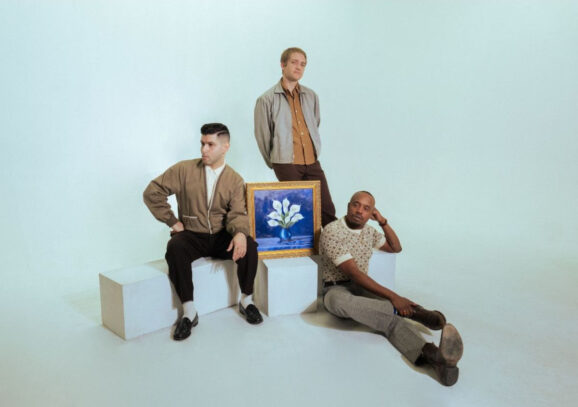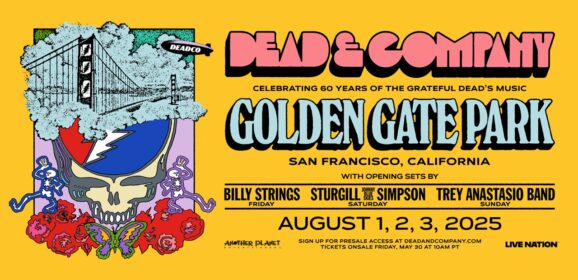Arguably the least substantial of all Steely Dan albums, this third outing of the group’s nonetheless marks significant movements in their career. With the success of “Rikki Don’t Lose That Number,” The Dan made up for a lack of a hit single from their sophomore LP, Countdown to Ecstasy, and thus picked up where they left off with the mainstream via their debut Can’t Buy a Thrill and its commercial highlight “Reelin’ In The Years.”
On a more practical note, the addition of and substitution by studio musicians foreshadowed the dominance of such session players on future work overseen by songwriters Donald Fagen and Walter Becker. Among many others here, bassist Chuck Rainey, drummer Jim Gordon, and guitarist Dean Parks superseded members of the six-man touring troupe that was about to be retired from the stage for the sake of increasingly exacting (obsessive) standards in play during the creation of studio recordings.
In that regard (among others), Steely Dan’s titular leaders heartily mock themselves in the long-winded, tongue-in-cheek liner notes to the 1999 CD remaster of this title. But it’s also true, in one of several ironies arising from The Dan’s music, that the brevity of select cuts, including the ninety-four-second “Through With Buzz,” marks a concerted (begrudging?) effort to accommodate commercial considerations. The truncated playing time of most of the album’s second half derives from tracks such as the 2:19 of “With A Gun” and the 2:45 of “Monkey In Your Soul.”
Less than three minutes of playing time doesn’t allow for much instrumental embroidery upon cryptic words carrying a palpable undercurrent of violence. Still, the concise approach overseen by producer Gary Katz doesn’t preclude some readily discernible experimentation in arrangement on Pretzel Logic. Hear the horns on “Night By Night” a progression from those on “My Old School”–the acoustic guitar intro for “Any Major Dude Will Tell You”–that instrument a rarity on a Dan record–and the steel guitar on the decidedly non-country tune called “Barry Town”–played by future Doobie Brother Jeff ‘Skunk” Baxter.
Nevertheless, in keeping with its title, there is some demonstration of Steely Dan’s jazz roots on Pretzel Logic, just not in extended improvisation or soling. Instead, there’s a jaunty cover of Duke Ellington’s “East St. Louis Toodle-Oo” and an homage to Charlie the Yardbird in “Parker’s Band” (a fantasy narrative not unlike the later “Deacon Blues”).
The latter features a deadpan vocal reading by Fagen that not only illustrates his evolution as a singer but also the wisdom of hiring the likes of keyboardist Michael Omartian. Becker’s songwriting partner could, by his admission (in the unauthorized bio Nightfly: The Life of Steely Dan’s Donald Fagen), better concentrate on his singing of arcane lyrics like those of the title song. By this time too, he had dropped all similarities to Dylan in his phrasing and delivery
While its black and white cover photo by Rae Anne Rubenstein is an only indirect reference to the record it encloses, Pretzel Logic marks a significant and deliberate step forward in Steely Dan’s ascent to a widespread commercial achievement on par with its critical acclaim. As a reminder of the band’s unconventional approach to pop conventions–encapsulated in the progressive drama of refrains on “Rikki”– it also allowed incremental growth of Fagen and Becker as recording artists even as the odd name of the band (taken from William Burroughs novel Naked Lunch) became increasingly familiar to the mainstream.
With the clarity of fifty years of hindsight, however, it’s well to note Steely Dan didn’t reach the full fruition of its efforts for another three albums. It was only after Katy Lied and The Royal Scam that 1977’s Aja achieved success so culturally pervasive that the subsequent album. 1980’s Gaucho, was an object lesson in anticlimax. This despite the fact it was also an exercise in marked artistic self-indulgence on the part of Fagen and Becker that resulted in a dense noir atmosphere comparable to the most shadowy passages in a Raymond Chandler or Ross McDonald novel.
Their parting of ways soon after the latter album’s release lasted nigh on two decades. But the inevitable reunion resulted not only in four Grammys for Two Against Nature, but also the eventual and wholly glib assignation of their wittily conceived and executed music to the easy-listening domain now known as ‘yacht rock.’
As gracious as they were in accepting the aforementioned awards, the curmudgeonly duo surpassed themselves when they began to helm lineups of hand-picked, sophisticated musicians for touring purposes. A fairly extensive schedule of live dates ensued up to and including the last with Becker (who passed in 2017) and later on, shows overseen solely by Fagen.
Legal actions regarding the latter’s continuance of activity under the aegis of ‘Steely Dan” hardly deterred him from persevering on behalf of the legacy (until his illness intruded). The perspective of a half-century confirms, however, that, notwithstanding all the relative faults of Pretzel Logic, it will, along with the rest of the group’s discography (especially the early entries), ensure the name continues to garner deserved recognition with time, even if it’s often for the wrong reasons (see that episode of The Simpsons).










